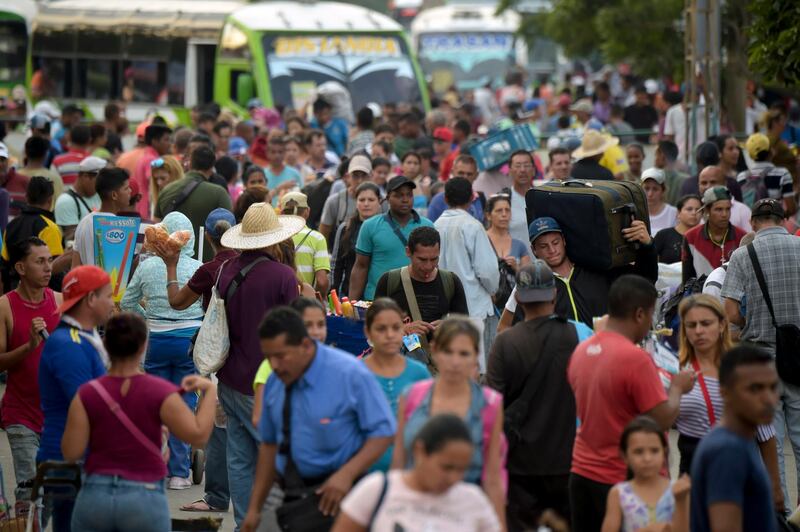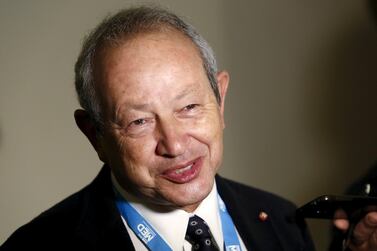Venezuela's foreign minister Jorge Arreaza insisted at the United Nations on Tuesday that there is no humanitarian crisis in his country but announced plans to scale up co-operation with UN agencies to help the economy.
His remarks were in stark contrast to those of opposition leader Juan Guaido, who on the same day told tens of thousands of supporters that desperately needed essential goods would be brought into the country on February 23, despite opposition from President Nicolas Maduro.
Mr Arreaza met late on Monday with UN Secretary-General Antonio Guterres in New York, the second such meeting in a month, as the stalemate hardened between Mr Guaido, who has declared himself acting president, and socialist leader Mr Maduro.
"Let's not be so hypocritical in this conversation," Mr Arreaza told reporters at UN headquarters. "There isn't a humanitarian crisis. There is an economy that is subject to a blockade.”
The UN said it stands ready to ramp up humanitarian aid to Venezuela, where an economic meltdown has sent millions fleeing out of the country. Such relief requires consent from Mr Maduro's government.
Venezuela's imports-dependent economy is in a tailspin marked by hyperinflation and shortages of basic necessities that the opposition blames on corruption and mismanagement by the Maduro government.
Mr Arreaza said US sanctions were to blame and repeated his government's claim that the United States was using aid as a political tool, aimed at regime change.
US aid has been piling up in Colombia at the border with Venezuela but a bridge crossing has been barricaded by the military, under Mr Maduro's orders.
"A government that is threatening you with use of force, with invasion, with a blockade, that gives orders to other countries for them to block you, do they really want to provide you with humanitarian aid?" said Mr Arreaza.
"This is a hostile government that is killing you and then they want to help you out."
An estimated 2.3 million Venezuelans have left the country to take refuge elsewhere in South America, while millions more find themselves in poverty.
The foreign minister said he had discussed "deepening co-operation" between Venezuela and the UN during his meeting with Mr Guterres, but did not provide details.
In Caracas earlier, the government signed two agreements with the UN Food and Agriculture Organisation and the UN children's agency Unicef to enhance school feeding programmes.
The UN chief has offered to help broker negotiations between Mr Maduro and Mr Guaido, the 35-year-old head of the opposition-controlled National Assembly, who has been recognised as Venezuela's leader by about 50 countries, including the US.
Russia and China, however, continue to back Mr Maduro. The split has left the UN in a quandary.
Mr Guterres has said he will not join any group of nations promoting initiatives to address the crisis in Venezuela, but is willing to step in if both sides ask him to play a mediating role.
Taking his authority from the constitution, National Assembly leader Mr Guaido views as illegitimate Mr Maduro's re-election last year in a poll widely viewed as being fraudulent.
He is trying to force the president from power so he can set up a transitional government and hold new elections.
Mr Guaido told a rally: "It's sure that the humanitarian aid will enter Venezuela because the usurper will have no choice but to leave Venezuela.
“We have almost 300,000 Venezuelans who will die if the aid doesn't enter. There are almost two million at health risk.”







